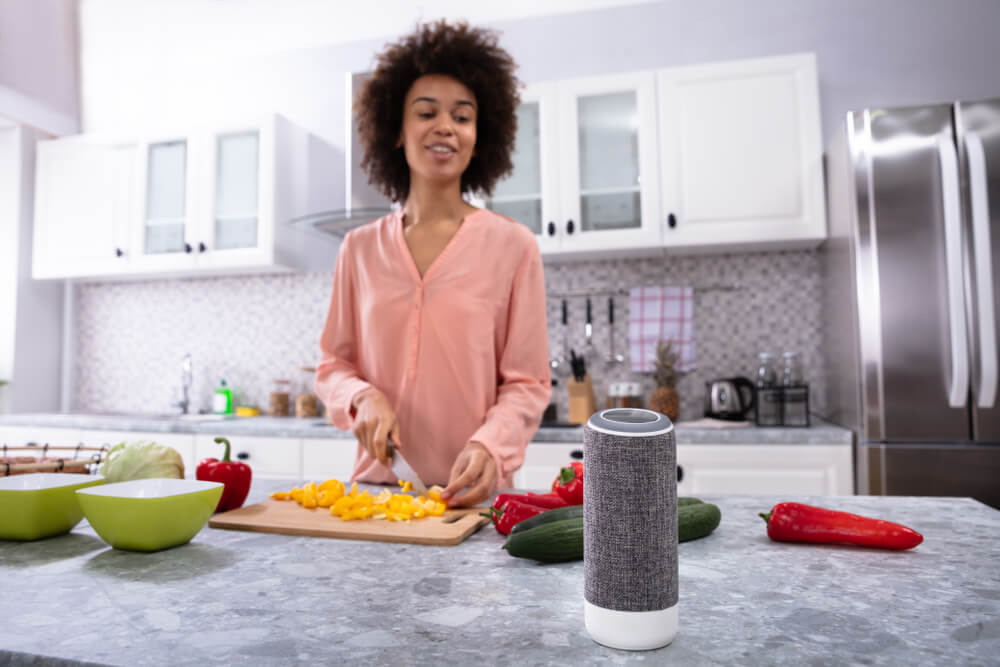
You’re away on vacation with your family, but back at home, a pipe burst in the basement. In times past, the basement would flood, items would be damaged, and even electrical systems could be affected.
Arriving home from a fun vacation could quickly turn into a nightmare. However, with smart home technology, the first signs of a leak are detected, and the water is turned off immediately. On top of all that, the homeowner receives a message from AI, notifying them of this situation.
Homeowners can truly relax while they’re away from their house with this technology. Smart home devices monitor and oversee your home and belongings while you’re away. With smart tech, which uses Internet of Things (IoT), you will know when a leak occurs, a fire breaks out, or carbon monoxide is present.
These are just a few of the things smart home devices can do. As a result, homeowners are seeing their policy premiums go down because fewer claims are being filed—making your home policy even more affordable and worthwhile.
The Rise of Technology in Home Insurance
Embracing technology has been beneficial for consumers and insurers. Between home security systems and smart home devices, homeowners receive a fairer risk assessment, which drives down the cost of coverage. Additionally, carriers benefit because of mitigation efforts that reduce claims.
How AI Is Streamlining Risk Evaluation
Artificial intelligence is adept at assessing risk factors for the insurance industry. Using Internet of Things, machine learning, and advanced data analytics, AI can quickly analyze substantial amounts of data, which can predict risk. Insurers can offer more personalized plans and reduce fraud.
AI also helps streamline and automate various tasks that were once done by human eyes. For example, artificial intelligence can assist with the claims process, underwriting, and data entry. By improving efficiency, insurers reduce overhead costs and can pass the savings on to consumers.
What Risk Scoring Means for You
Have you ever wondered how two people living in similar homes can get different homeowners insurance premium costs? Companies use risk assessment to determine which consumers may be more likely to file a claim. Each person gets a score that is similar to a rating of their level of risk. This helps insurance companies provide a more personalized and fair price for policyholders.
With easy-to-understand risk scoring numbers, careers can also benefit from individualized pricing because with more accurate risk assessment, the more accurate the premium-to-claim ratio. Ultimately, everyone benefits due to reduced claims and reduced premium amounts.

Understanding the Factors Behind the Score
Various factors play a part in determining a person’s score. These factors are as follows:
- Credit history
- Claims history
- Occupation and lifestyle
- Location
- Age and gender
- Property details
- Occupation and income stability
Why Property Upkeep Still Matters
Property upkeep is important for many reasons. First, the better you maintain your property, the longer it will last. Also, proactive maintenance can prevent things from breaking down and costing more money. Finally, you will have lower insurance premiums because your risk is lower.
Common Property Risks You Can Prevent
You can avoid some common property insurance claims by reducing risks for the following:
- Fire hazards
- Water damage
- Theft and burglary
- Roof damage
- Tree hazards
- Slip-and-fall hazards
How Maintenance Impacts Your Insurance Rate
Maintaining your home will result in fewer overall problems, leading to fewer insurance claims. In addition, being proactive can help reduce some types of emergencies, or at the very least, minimize the damage. These are just a few tips for reducing home premiums.
The Benefits of Personalized Insurance Pricing
The main benefit of personalized insurance pricing for the consumer is that it puts premium costs in their hands. For example, if they invest in certain smart home technology, including anti-theft devices, they will see lower premiums.
Fairer Rates Based on Real-Time Data
Some property insurance companies offer usage-based insurance (UBI), where the premium paid is proportionate to the use of the insured property. A good example would be a policyholder who has a vacation home that they only use for a few months out of the year. In this case, it would make more sense for insurers to charge them a lower premium than someone who uses the home year-round. IoT devices like smart sensors and other monitoring systems enable analytics that make such personalization possible.
Rewarding Responsible Homeowners
By utilizing water leak detectors, automated smoke alarms, security cameras, and smart thermostats, responsible homeowners can be rewarded with lower premiums, policy incentives, or even discounts from their insurers. These devices minimize the chances of surmounting claims both by identifying and mitigating issues long before they escalate. Through acknowledging such proactive actions, insurers not only promote safer homes but also reduce risk exposure.
These tech-savvy homeowners, alongside their insurers, reap the benefits because residential claims reduce, and insurers improve upon loss ratios.